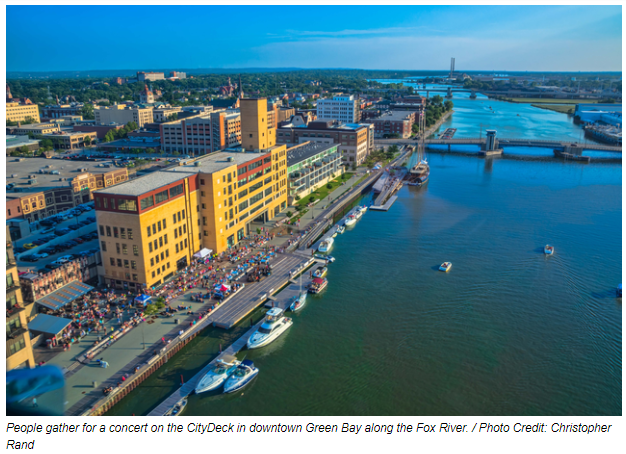
Wisconsin DNR: Great Lakes Areas Of Concern Conference in Green Bay Sept. 12th-14th
Regional Leaders Gather To Advance Great Lakes Restoration
GREEN BAY, Wis. – The Wisconsin Department of Natural Resources (DNR) invites those involved in Great Lakes restoration efforts to attend the upcoming Great Lakes Areas of Concern Conference at the KI Convention Center in Green Bay, September 12th-14th, 2023. Registration closes September 6th.
“The Great Lakes Area of Concern Conference is an amazing opportunity where over 250 partners including states, local advisory groups, tribal nations, federal agencies and local entities come together to share knowledge and experiences so that we can collectively accelerate progress towards eventually delisting these areas,” said Chris Korleski, EPA Great Lakes National Program Office Director. “We look forward to a productive and highly interactive event and applying that knowledge to remediate and restore AOCs across our treasured Great Lakes.”
This year’s conference is co-hosted by the U.S. Environmental Protection Agency (EPA), the Wisconsin DNR, and UW-Green Bay.
“The Great Lakes comprise the largest system of fresh surface water in the world and are vital to our economy, communities and way of life,” said Jim Zellmer, Wisconsin DNR Environmental Management Division Administrator. “The conference will collectively allow us the chance to build and foster connections, discuss challenges and share solutions to accelerate cleanup and restoration of the remaining Areas of Concern within the Great Lakes basin.”
Areas of Concern (or AOCs) are 43 polluted hot spots in Great Lakes rivers and harbors that were specially targeted by the U.S. and Canada for cleanup in the 1980s. To date, six sites have been removed from this list on the U.S. side – including one from Wisconsin. The Lower Menominee River, which forms the border with Michigan in northeast Wisconsin, was removed from the list in 2020. Wisconsin has four remaining AOCs: the Lower Green Bay and Fox River, Sheboygan River and the Milwaukee Estuary on Lake Michigan. On Lake Superior is the St. Louis River AOC, which Wisconsin shares with Minnesota.
Federal Great Lakes Restoration Initiative (GLRI) funding, first launched in 2010, helps communities clean up pollution in AOCs and restore waterways. An additional infusion of funding from the Bipartisan Infrastructure Law will help remove the remaining AOCs from the list of most polluted sites on the Great Lakes by 2030.
“The Great Lakes Area of Concern conference is an amazing opportunity where over 250 partners including states, local advisory groups, tribal nations, federal agencies and local entities come together to share knowledge and experiences so that we can collectively accelerate progress towards eventually delisting these areas,” Korleski added. “We look forward to a productive and highly interactive event and applying that knowledge to remediate and restore AOCs across our treasured Great Lakes.”
Highlights of this year’s conference include tours of fish and wildlife habitat restoration projects in the area. Another tour will show how pollution cleanup and water quality improvement efforts are helping Green Bay communities reconnect with the waterfront and revitalize the economy.
Other presentations will include topics such as community perspectives on environmental justice, Tribal partnerships to include Indigenous knowledge in projects, lessons learned from complex sediment remediation and restoration projects and building climate resiliency into restoration projects.
View the entire conference agenda and register on the Conference Website. Please register by September 6th.

